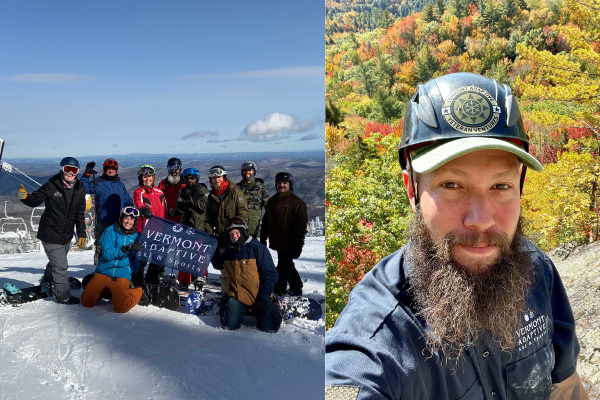
by accdWebMaster | Nov 2, 2021 | Veterans
Five months into his second deployment to Kunar Provence, Afghanistan (Aug. 2011), Med. Ret. SSG Misha C. Pemble-Belkin’s unit was in a direct engagement with Taliban fighters. During this fight he was in close contact to a blast that caused a cervical spine injury and a TBI. He had the opportunity to be sent home but decided to stay in country with his guys to do his part to bring them back home. Once he returned home, he attempted to recover and heal to be able to deploy again in the following year. His injuries were worse than he had thought and were irreversible. During this recovery process, he had to except the fact that he could no longer be a Soldier. He fell into a rut and had lost the sense of purpose and pride that he once had of himself.
In February 2015 he medically retired from the US Army and was sent on his way, without really knowing what the future held. He struggled to find his new path and purpose in life. Through a few connections, he learned of Vermont Adaptive’s veterans program. Moving to Vermont for its winter sports and growing up with a passion for snowboarding, he took advantage of the program and hit the slopes with the Veterans groups about a dozen times. The following summer, he hiked, kayaked and went bowling with Vermont Adaptive, growing a genuine bond with the staff, volunteers and fellow vets in the program.
That initial introduction to Vermont Adaptive turned Pemble-Belkin into a volunteer instructor, an intern and today he is the organization’s Veteran Ventures Program Coordinator.
Vermont Adaptive is proud to offer programs specifically designed for injured service members, veterans with disabilities, and their families. Since the organization’s inception in 1987, Vermont Adaptive has worked with veterans with disabilities and evolved its programs to match the changes in the needs and interests of men and women who have been injured in the line of duty.
Many years ago, Vermont Adaptive was a major destination for groups of physically disabled veterans from the Vietnam era. It then saw an increase in disabled veterans participating in sport through and after the Persian Gulf crisis. Today is a new era, where veterans with disabilities include those with both physical and invisible disabilities like Post Traumatic Stress Disorder (PTSD) and brain injuries.
Through the years, Vermont Adaptive has participated in national initiatives like the Wounded Warrior Disabled Sports Project and events, plus continually works with partners like Moved United USA, the US Paralympics, and the United States Association of Blind Athletes. The organization’s efforts are on a local, regional and national level.
Since Pemble-Belkin took the helm of Veterans programs in 2017, Vermont Adaptive has served nearly 350 individual Veterans through more than 4,462 individual activities and almost 20 multi-day retreats.
“One of my very first lessons was with this boy who had minimal verbal communications, and used mostly hand signals to communicate” said Pemble-Belkin. “His mother informed me that he really wanted to go up one of the chair lifts, since he had never been up one before. We started on Mighty Mite (at Bolton Valley Ski Area), the tow rope to assess his abilities, and within a few runs it was clear he had the balance and ability to go up the lift and be tethered down the slopes. That first run I took with this young, brave boy softened the hard shell that I had put up around my heart. The smile that he had on his face as he glided down the mountain was unforgettable and something that I will cherish for the rest of my life.”
Veteran Ray Hamilton is another person in the program who was looking for a change. A veteran from Upstate New York, Ray had moved to Vermont looking to get away from a hectic home life. When he first got here, he said that he had trouble meeting people, and he fell in with a crowd that didn’t enable him to make the healthiest choices. He eventually learned of Vermont Adaptive’s Veteran Ventures Program as well. This group of veterans is a tight-knit bunch, but you would be hard-pressed to find a more welcoming group of people. On Thursdays in the winter, the group comes together at Bolton Valley, which includes a potluck lunch, skiing, snowboarding, and a lot of camaraderie.
In the summer, Hamilton spent his Thursdays biking and hiking as a way to get out of the house. He said that joining up with Vermont Adaptive’s Veteran Ventures program helped him to stop being reclusive, and get him outdoors with good friends.
Veteran Ventures is a year-round program offering skiing, snowboarding, snowshoeing, ice climbing, rock climbing, hiking, biking, bowling, therapeutic horse-back riding, downhill and trail mountain biking, paddling and whitewater rafting, specific Veteran’s retreats and more. All veterans participate with Vermont Adaptive for free; there is no charge.
To learn more, visit the Veterans program section of vermontadaptive.org or contact Ret. SSG Misha Pemble-Belkin at veterans@vermontadaptive.org or 802.770.0445.
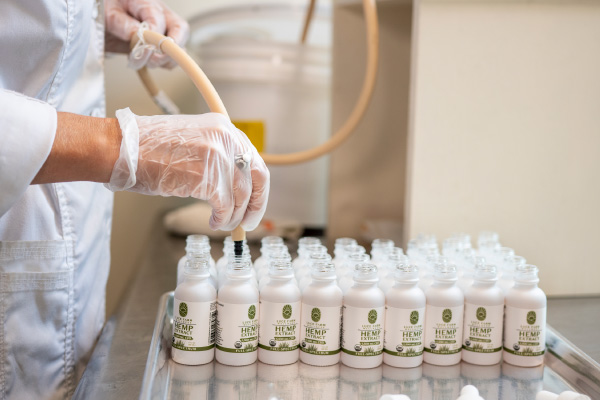
by accdWebMaster | Nov 2, 2021 | Agriculture, Entrepreneurship
Written by Kelly Nottermann, Communications Director, Vermont Sustainable Jobs Fund | Photo by Erica Houskeeper, courtesy of the VSJF
When Rebecca and Joe Pimentel moved to Vermont, they envisioned a life of organic farming and raising their family close to the land. “We’ve always been passionate about the food movement and about what we put into our bodies,” said Joe, who began farming commercially in 2010 from his Massachusetts homestead, “and Vermont had so much access to organic food.”
The pair began growing organic produce and trucking the fruits and vegetables to Massachusetts. They thought one day they might set up a teepee village and offer yoga on the farm.
Then Will Raap called.
The founder of Gardener’s Supply and a partner in Evergreen Capital Management along with Alan Newman, a Vermont entrepreneur who co-founded Gardener’s Supply, Seventh Generation, and Magic Hat Brewing, Raap had an eye on the growing interest for CBD products. He wanted to know if the Pimentels would consider growing hemp. “Will and Alan are two of the greatest entrepreneurs in Vermont,” said Joe. “We knew they were at the forefront of something big.”
That was 2016, the start of the CBD wave in Vermont. The Pimentels agreed to do a test crop of 150 plants, which they would split with Evergreen, and Luce Farm Wellness was born. At the time, they were one of 14 other hemp growers in Vermont, a number that would surge to over 600 by 2019.
Joe and Rebecca took a deep dive into CBD oil production, and settled on supercritical CO2 extraction. They began selling a few products to friends and family, and were blown away by the response. “We had neighbors sitting at our kitchen table telling us they could ride a bike again after years of knee pain,” said Joe. “We knew we had a product.”
Sticklers for quality and consistency, especially in a nascent market rife with hype and false marketing claims, the Pimentels contracted a professional chemist to ensure accuracy and transparency in their labeling. In addition to knowing the exact amount of CBD in each batch of oil, the lab also ensured that total THC—the component of hemp that contains psychoactive properties—was consistently under .3 percent. “We wanted to know exactly what was in each jar, so that our customers could know what they were buying,” said Joe. “It was the only way we wanted to do business.”
Using their farming model for sales, the Pimentels began selling CBD products at farmer’s markets, only now they were selling $50 bottles of CBD infused honey next to the eggs and lettuce.
That’s when they got the second call that would change the trajectory of their business. This one from a group of local investors. To keep tight control over quality and consistency of the product—the bedrock of their value proposition-—the Pimentels wanted to move the extraction process in-house. “We wanted our finger on every step—from growing the hemp right through to the final product,” said Joe. Additional investment offered a path to that next step.
Riding the CBD wave.
By 2017, the Pimentels moved production out of their kitchen and into a small manufacturing facility in Bethel, Vermont. The market for CBD products was rising steadily with seemingly limitless opportunity for growth. A global report released in October of that year projected the CBD oil market to grow at a compound annual growth rate (CAGR) of 39 percent between 2017-2021.
But being a start-up in the early days of CBD was not without its challenges. “No one knew what to do with us,” said Joe. “The credit card companies cancelled our card, traditional lenders like banks wouldn’t touch us—even the Vermont Department of Health wasn’t sure how to inspect our facility.”
With investors on board, the Pimentels brought on David Barash, who has since passed, as interim CEO. Barash brought deep experience as a former executive with Burton Snowboards, Shelburne Farms, and Ben & Jerry’s, and began positioning the company for a significant fundraise and expansion. “He was incredible,” said Joe, “one of the smartest guys I’ve ever met.”
Luce Farm Wellness surged forward, growing from three to 26 employees, purchasing hemp from other small growers in Vermont, and planning their fund raise. “It could have all worked,” said Joe. “But it didn’t.”
Back to basics.
“We were organic farmers sitting in board rooms pitching investors,” said Joe. “It was completely uncharted waters and not at all what we wanted to do.” The Pimentels were on the cusp of losing a majority share of the company in exchange for big investment dollars, which they needed to pay off debt. Janice St. Onge, president of the Flexible Capital Fund, who was on Luce Farm’s advisory board, pulled Joe and Rebecca aside. “You need a business coach,” she told them.
St. Onge recommended Lawrence Miller, a consultant with the Vermont Sustainable Jobs Fund’s business management coaching program that offers professional support to Vermont companies navigating critical transitions through a network of entrepreneurial coaches. Miller also owns Five Vine Consulting, and is the former Secretary of Commerce and Community Development in Vermont. As Joe tells it, the company was in big enough trouble that Lawrence agreed to help. “He told us ‘you have a big hill to climb,’” recalls Joe. “‘I like challenges,’ I told him. ‘Let’s do it.’”
“There were a lot of smart people thinking about how to move the company forward,” said Miller, “but Joe and Rebecca were not on their authentic path and there was a lot of anger and frustration building from a lack of communication.”
Miller’s first step was damage control. “The financial plan was disconnected from the life Joe and Rebecca wanted for their family,” said Miller, who facilitated conversations with investors and creditors to align expectations. “These were tense and high-stakes conversations,” he recalls, “but most stakeholders were flexible when the true conditions of the company were communicated with transparency.”
From there, Miller coached the Pimentels on getting back to basics. “Sometimes you have to go slow to go fast,” said Miller, who helped the company reorganize liabilities and create a plan to pay everyone slowly. Though Joe says the company is still in repair mode, they are “three-quarters of the way up Everest.” The company has paid back the farmers they contracted to grow hemp and reduced staff from its high of 26 to back to six.
Perhaps most importantly, Miller has helped the Pimentels re-envision a future version of Luce Farm Wellness aligned to their core values and lifestyle. “They have a lot of it right,” said Miller. “They have the right seed, the right growers, the right extraction process, and the brand resonates with people. They just weren’t ready to grow at that pace.”
Miller worked with the Pimentels on getting the fundamentals in place—everything from accounting and order management systems to a full understanding of manufacturing costs that account for labor and rent. He also helped them separate their passion for farming from the CBD business. “The farm is a hobby now,” said Joe. “Wellness is our business.”
With their feet back under them, the company plans to grow slowly and organically. They continue to maintain a laser focus on quality and consistency with new plans to bring extraction in-house, and have started to invest in marketing.
Parting advice.
Though it was a tough couple of years, Joe doesn’t regret the ride. “We’re super thankful,” he said. “Harvard Business School could not compete with this education.” His advice to other entrepreneurs, “Don’t be afraid to let your priorities change and don’t wait to ask for help from someone who has been there before.”
Miller agrees. “Personal growth is one of the biggest limiting factors for many entrepreneurs,” he said. “Joe and Rebecca were open to change, and able to take in new information to make better decisions.” His advice to start-up companies: take a pause. “Whether it’s a few minutes to gather your thoughts before an important phone call, or a weekend of reflection to think about what you want from your life, that pause can help you pull back to see the full picture.”
About VSJF Business Management Coaching Program
The Vermont Sustainable Jobs Fund provides tailored, high-touch planning, coaching, and advising for business owners and their management teams to advance profitability, job creation, and sustainable job development. For more information about business management coaching, visit www.vsjf.org.
Story originally appeared on the Vermont Sustainable Jobs Fund’s website: https://www.vsjf.org/2021/09/27/slowing-down-to-go-fast-luce-farm-wellness-rides-the-cbd-wave/
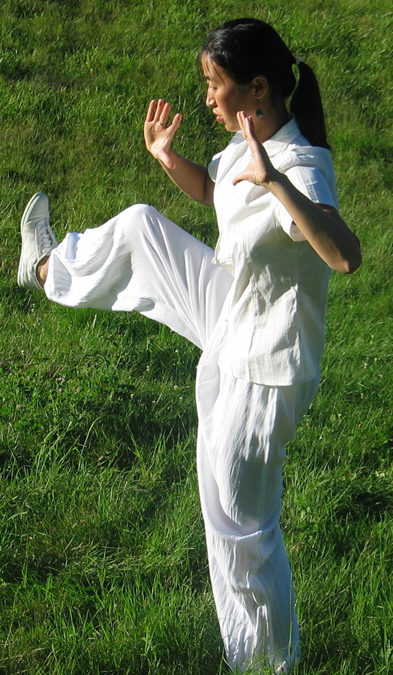
by accdWebMaster | Nov 1, 2021 | Creative Economy
Cai Xi’s creative practice is rooted in experimental contemporary art and informed by a deep connection to traditional Chinese art. She uses calligraphy in her works and employs the classic principles of brush (using the common mop, broom, and mason’s trowel), ink (oil or enamel paint), and bone (compositional structure).
In addition to her painting, Cai uses skills derived from being a chef, educator, and Taiji master to create multimedia explorations. She explains that “with performance mop paintings, monumental portraits, and installations that dance in the wind, I am also celebrating art as food, food as art, the whole cooking process as art.”
Cai shared her thoughts about being a Vermont artist.
How has living as an artist in Vermont affected your creative process?
Growing up in a large densely populated city of China I nevertheless had a few experiences of visiting rural Chinese villages–that countryside and the natural beauty of it has dwelt in me ever since. When I settled in Vermont almost twenty years ago it was a dream of mine becoming a reality. The open sky and breathing land immediately inspired me to follow nature’s lead. After diving into the Earth & Sky landscape series, I extended my contemplation of my new home into the community of people in this landscape, neighbors and friends–listening to and learning from each person, their lives, and their stories. For me, Vermont is about connecting with and learning from nature, the natural settings of Vermont.
What is something about your art that has changed over time?
My art is a tool, a channel, a bridge for me to be connected with people and to recognize the beauty of all people. Over these years in Vermont, my awareness of this environment where I am has developed, while acting locally, making locally, and being part of the locally sourced ethos. The process of doing the You and Me series, each portrait, is my opportunity to take time to listen and study the stories and lives of the people depicted. My Earth and Sky landscape painting series is a process of letting go of myself, dropping my ego, letting nature take me, embrace me. I am melting into the vastness of nature. The beauty of nature remains in a second, a minute, an hour, a day, a month, a year, and thereafter forever. Nothing was, is, and will be greater than nature. It is my ongoing prayer for Peace on Earth.
What is your vision for the next several years?
I envision art-life, applying my art practice in whatever I do, cooking, teaching, taking care of my health, painting and drawing, and everyday living, sharing contemplation, insight and the joy of making with others.
Visit Cai’s website.
Read about Cai’s performance, her retrospective, her Edge series, and more.
Learn about the Chinese word art project.
Browse Cai’s videos.
The “I am a Vermont Artist” series explores how artists’ creative expressions reflect their experiences of ethnicity, gender identity, religion, disability, or age. Covering all artistic disciplines, and a range of backgrounds—from New Americans to the state’s first residents—we hope to amplify voices that deepen our understanding of what it means to be a Vermont artist. This story by the Vermont Arts Council originally appeared at https://www.vermontartscouncil.org/blog/i-am-a-vermont-artist-cai-xi/
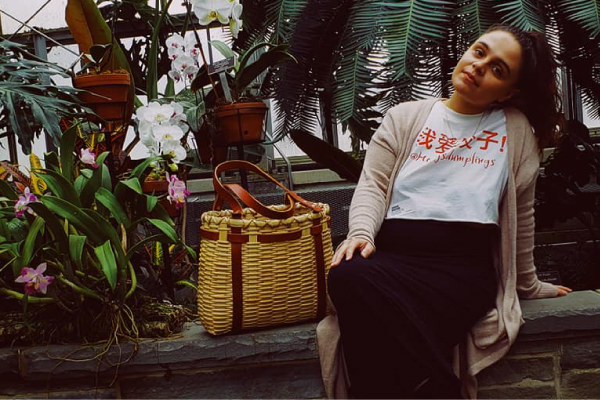
by accdWebMaster | Oct 25, 2021 | Creative Economy
To hold something is harder than you might think. It takes preparation, motivation, ancient skill and technique. All through history, there have been people for whom holding is a calling: the weavers.
Alexa Rivera of Burlington has been weaving since she was 10. It started with needle and thread bead weaving in Poughkeepsie, NY, where she would help the older women in her classes thread their needles. After moving to Vermont in 2012, Alexa often found herself weaving with natural materials found in the woods. This habit grew into a vocation and a business, WOVN.COUNTRY, through which Alexa has been selling fine baskets and teaching the art and craft of basket weaving since 2016.
Like so many Vermonters, Alexa is down to earth about her work. There was a time when she hesitated to think of her baskets as art—she makes them because they are useful, because they hold things people need. But Alexa has found that her weaving is more than the sum of its parts. It is a way to engage the human spirit, and to strengthen our connections to the land and to our ancestors.
Alexa shared her thoughts on being a Vermont artist.
How has living as an artist in Vermont affected your creative process?
There is something about the smallness of Vermont that makes things possible. One summer I decided I wanted to be a beekeeper, and one Craigslist search and a few emails later and I was spending my days surrounded by swarms of bees, working for one of the largest commercial beekeeping operations in the state, swollen with venom and sticky with honey, driving all around the Champlain Islands and Northeast Kingdom to check on colonies and queens.
Coming from a much bigger place (I grew up in Poughkeepsie, NY, and had family all throughout New York City), it just didn’t seem as possible that you could want to do something or be something, and then go do it. Vermont is small, and the community is wildly and overwhelmingly supportive, and my creative process has expanded from the weightlessness of possibility. This place is beautiful, and people are all over the state looking at those mountains and streams and deciding that they can do interesting things and live good lives. It just makes you wanna do it too.
What is something about your art that has changed over time?
Something that has changed about my art over time is actually allowing myself to view what I do as “art” at all. For a while, I was very quick to make the distinction that what I was doing was a craft—done across the globe since forever, one that I had no claim to have invented, and that was about usefulness and practicality. “Art” to me was big and important, and the artists that I looked up to were making things that were about love and death and existence and trauma and joy and life’s great questions, and I just wanted to make things that held other things.
What has changed is that now I know just making things to hold other things is also about love and death and existence and trauma and joy and life’s great questions. And the days it’s not about that at all, the days it’s just about the rhythm of under over, under over, whew—those are the best days.
What is your vision for the next several years?
In the next few years, I’d like to explore place and identity through my basketry. For years I have woven other peoples’ baskets, such as Adirondack pack baskets and Appalachian egg baskets, and learned their histories. But now I want, and need, to weave the baskets of my own people. Puerto Rico, where my father’s side is from, has a palm weaving tradition, as well as the fascinating basketry tradition of the Taíno—the indigenous people of the islands.
One of my projects in dreaming phase right now is to explore those traditional Caribbean techniques, but to weave them with plants native to Vermont—and then to weave the classic styles of baskets of the Northeast, but substituting the materials for tropical grasses and vines. I see it as a nod to and a study of people and place, and our blood home and our choice home, and the idea of being “half of,” which I think many people, particularly mixed race people, struggle with. I also just wanna make pretty things and drink whiskey and try to fight for justice and have fun, you know?
Visit Alexa’s website.
Follow WOVN.COUNTRY on Instagram.
Read this recent interview with Alexa.
The “I am a Vermont Artist” series explores how artists’ creative expressions reflect their experiences of ethnicity, gender identity, religion, disability, or age. Covering all artistic disciplines, and a range of backgrounds—from New Americans to the state’s first residents—we hope to amplify voices that deepen our understanding of what it means to be a Vermont artist. This story by the Vermont Arts Council originally appeared at https://www.vermontartscouncil.org/blog/i-am-a-vermont-artist-alexa-rivera/
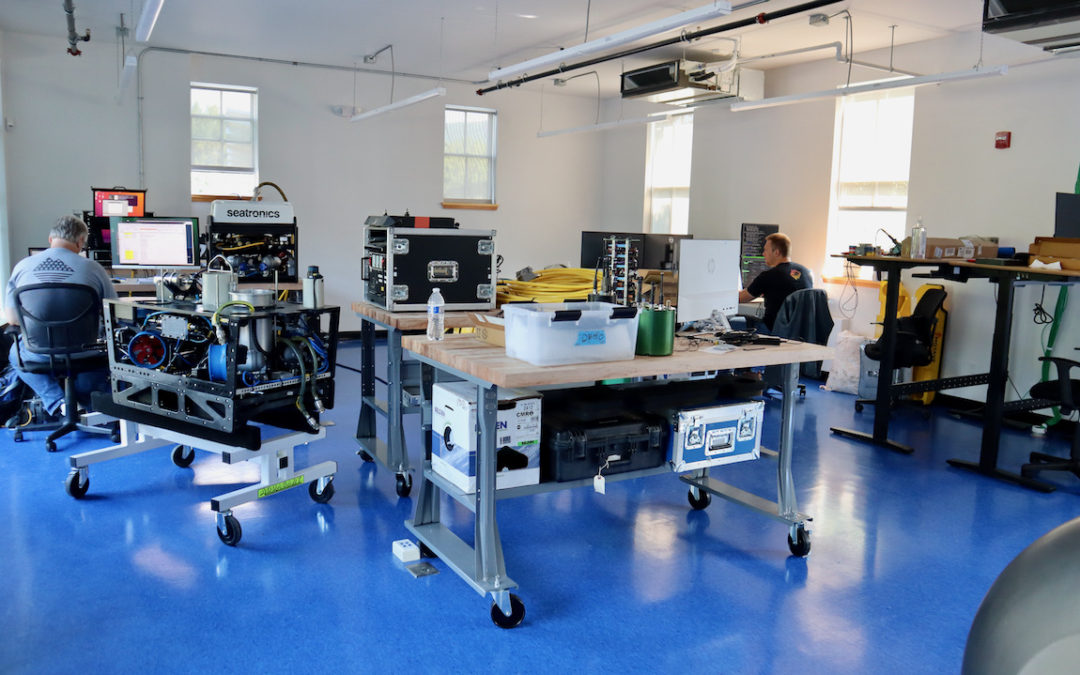
by accdWebMaster | Oct 21, 2021 | Incentives/Financing/Programs, Relocation, Software & Technology
Vermont’s small-business-minded community makes for fertile ground for businesses to grow, even during the course of the COVID-19 pandemic.
Greensea, a Richmond-based business that creates and maintains OPENSEA, the universal open architecture software for deep-sea robotics applications, recently expanded its operations into another nearby building, Richmond’s Creamery.
The company marked its 15th year in business by leasing 4,200 square feet of the building for use as offices and laboratory space.
Dawn D’Angelillo, marketing director at Greensea, says the new space will allow the company to add to its ranks and build a more tightly knit community of employees. Greensea, which had 49 employees in August 2021, will likely hire a dozen more people by the end of the year, she said.
Greensea founder and owner Ben Kinnaman “is very about community,” D’Angelillo said, and the company grew during the COVID-19 pandemic.
“We didn’t feel how much we had grown, because all of us were remote, but then Ben really wanted people to start getting back together and communicating and collaborating side by side. He wanted more people together and the Vermont office had gotten so big we couldn’t really be in the same building comfortably,” D’Angelillo said.
Greensea is primarily Vermont-based, but an office in Plymouth, Mass. allows employees to meet with harbor-based clients and access the ocean to test systems, D’Angelillo said. About 70% of the company’s employees live and work in Vermont.
Kinnaman is determined to keep his business in Vermont and grow it here.
He started his career as a commercial diver and remotely operated vehicle (ROV) pilot in North Carolina, and that’s when D’Angelillo said he was inspired to create the open architecture software platform for the marine industry that would become OPENSEA.
His employer at the time wasn’t interested in helping develop it, so Kinnaman decided to go into business for himself.
He and his wife had vacationed in Vermont and decided it would be their new home and that of Kinnaman’s new business.
Kinnaman says he found support in Vermont’s lending institutions and from the state of Vermont when he first started Greensea.
“What Vermont offers that no other state can offer is a rich and vibrant community of like-minded entrepreneurs and a support network that is unequaled,” Kinnaman said.
“When we first started Greensea, no lender would look at us twice but Vermont Economic Development Authority (VEDA) would. They’ve been just amazing. … Vermont also has a great and very approachable investor community. This ranges from angels, to private equity, to institutional equity. I have been very fortunate to find two amazing private equity investors that have been sources of both capital as well as mentorship. This investor community also provides an accessible network of CEOs, entrepreneurs, and leaders. This is a fun and productive network.”
Kinnaman highlighted Vermont Center for Emerging Technologies for its advice and assistance as Greensea grew.
D’Angelillo says Greensea also received several state grants during the course of the COVID-19 pandemic which helped them add new employees and expand into the new space at the Creamery building, including a Vermont Employment Growth Incentive, a State Trade Expansion Program grant and a Small Business Innovation Research grant.
The Vermont Department of Economic Development also led a years-long effort to redevelop and remediate the Creamery building where Greensea now leases space.
“People ask, ‘Why did you choose Vermont?’ Why not?” she said. “Robotics and autonomy is changing so much that there’s a future where there’s going to be a vehicle that is unmanned but has an ROV that is connected to the ship controlled by someone in an office,” and that office might be anywhere.
“What makes Vermont really special is the lifestyle we can offer our employees and their families,” Kinnaman said.





